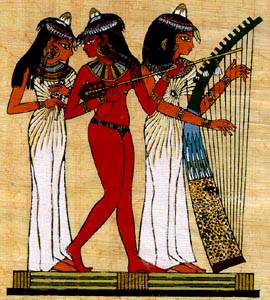by MuzaK KazuM (...a past blog of mine)

First worry. What distinguishes music from non-music? The world is replete with sound -- both man made sounds and the sounds of nature. Many of these sounds are quite beautiful -- the cries of various animals, the sound of the ocean, the whistling wind, the human voice, the majestic boom of the space shuttle as it rockets into space. But only a few of the sounds with which the world is replete count as music. Is there anything deep to say about what distinguishes music from non-music?
I'm not sure. One initially tempting thought is that music can be demarcated from non-music by its structure and organization. Music comes with a key signature, with meter, with melody, harmony and all that. Certainly a lot of music is organized and structured in this way. Almost all music that I enjoy listening to, for example, has some or all of these features. But there are probably instances of music that have none or few of these features -- late twentieth century and early 21st century "classical" music comes quickly to mind. That suggests that there may not be any necessary and sufficient conditions for what counts as music rather than non-music. It probably doesn't matter that there aren't such conditions. Most of us certainly know music when we hear it, even if we couldn't define it.
Second Worry. Music is often quite emotionally gripping. By turns, it can make us feel sad or elated, It can convey a sense of unfulfilled longing, of awe and wonder. It can make us laugh or cry. Music may even convey anger or regret.

It's not, I think, hard to come up with a first pass explanation of how music with lyrics or that accompanies other contentful representations might convey such emotion. When we set words to music, the words retain at least the expressive and representational powers that they have all on their own. But even here there are some complexities, I think. Music may certainly enhance the expressive power of the words, images, or scenes it accompanies. Imagine a scene in a scary movie. First imagine it without any music. Then imagine it with a subtle but creepy melody rising slowly. Which is more effective? It will depend, of course, on the details. But we've all seen movies in which the music greatly enhances the sense of doom lurking around the corner. If music can enhance the expressive power of a scene or a speech, then it's not the words or the scene alone that does the expressing, even when we have words accompanied by music.

It's also possible I suppose for there to be a mismatch between the music and the words (or other representations). Imagine angry words sung to a happy uplifting melody. I suppose, also, that it's possible to exploit such mismatches intentionally and creatively. The result I guess would be a kind of irony or perhaps even satire.
"Pure" music -- for lack of a better term -- probably does raise the issue more accutely, though. By pure music I mean music entirely devoid of representational content -- music accompanied by no scenes or words or images or narration. Just pure sound (ordered and structured to be sure) but still just pure non-representational sound. How does such music achieve such astounding emotive power in the absence of all representational content?
I don't really know the answer, to be frank. I'm not sure I have even a proto-theory.

I'm not sure. One initially tempting thought is that music can be demarcated from non-music by its structure and organization. Music comes with a key signature, with meter, with melody, harmony and all that. Certainly a lot of music is organized and structured in this way. Almost all music that I enjoy listening to, for example, has some or all of these features. But there are probably instances of music that have none or few of these features -- late twentieth century and early 21st century "classical" music comes quickly to mind. That suggests that there may not be any necessary and sufficient conditions for what counts as music rather than non-music. It probably doesn't matter that there aren't such conditions. Most of us certainly know music when we hear it, even if we couldn't define it.
Second Worry. Music is often quite emotionally gripping. By turns, it can make us feel sad or elated, It can convey a sense of unfulfilled longing, of awe and wonder. It can make us laugh or cry. Music may even convey anger or regret.


It's also possible I suppose for there to be a mismatch between the music and the words (or other representations). Imagine angry words sung to a happy uplifting melody. I suppose, also, that it's possible to exploit such mismatches intentionally and creatively. The result I guess would be a kind of irony or perhaps even satire.
"Pure" music -- for lack of a better term -- probably does raise the issue more accutely, though. By pure music I mean music entirely devoid of representational content -- music accompanied by no scenes or words or images or narration. Just pure sound (ordered and structured to be sure) but still just pure non-representational sound. How does such music achieve such astounding emotive power in the absence of all representational content?
I don't really know the answer, to be frank. I'm not sure I have even a proto-theory.
Do you?
 I do wonder, though, whether the emotion is, as it were, "in the music" or merely in our reaction to the music. Let me explain what I mean. You could, I suppose, think that when we called music sad or mournful or happy or said that it expresses unfulfilled longing, we mean nothing more than that it evokes such sentiments "in us." And there might be no deep explanation of why just these sound sequences should evoke just these sentiments or feelings in us. Maybe psychology might eventually reveal something deep. But there might be nothing more than brute fact or something about evolution or something about cultural constructions.
I do wonder, though, whether the emotion is, as it were, "in the music" or merely in our reaction to the music. Let me explain what I mean. You could, I suppose, think that when we called music sad or mournful or happy or said that it expresses unfulfilled longing, we mean nothing more than that it evokes such sentiments "in us." And there might be no deep explanation of why just these sound sequences should evoke just these sentiments or feelings in us. Maybe psychology might eventually reveal something deep. But there might be nothing more than brute fact or something about evolution or something about cultural constructions.On the other hand, you might think that when we call a piece of music sad we are getting at some sort of response-independent facts about the music itself, about, as it were, the internal qualities of the music.
I tend to think it's a "both and" sort of thing -- though it wouldn't take much to talk me out of this half-formed view.
 My thought is that when we call a piece of music sad, we are saying both something about its, as it were, intrinsic musical character -- albeit indirectly -- and also something about our response to it. In particular, by calling the music sad, we "license" certain emotional reponses as "appropriate" in light of the intrinsic musical character of the piece. If you aren't moved to sadness by sad music, you've in a way misperceived the music. Or that, at any rate, is what I believe at the moment.
My thought is that when we call a piece of music sad, we are saying both something about its, as it were, intrinsic musical character -- albeit indirectly -- and also something about our response to it. In particular, by calling the music sad, we "license" certain emotional reponses as "appropriate" in light of the intrinsic musical character of the piece. If you aren't moved to sadness by sad music, you've in a way misperceived the music. Or that, at any rate, is what I believe at the moment.The reductive metaphysician in me would like it to be the case that we could eventually say, in non-emotive terms, just what it is about the intrinsic musical character of a piece of music that makes it correct to say that the music is sad. But the music lover in me, wonders if we would really understand music better if we really could do such a thing...
